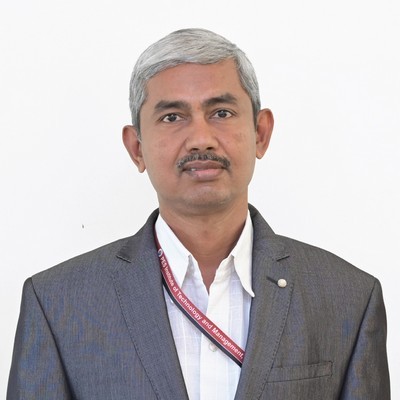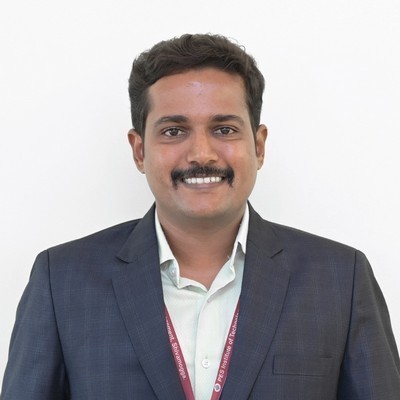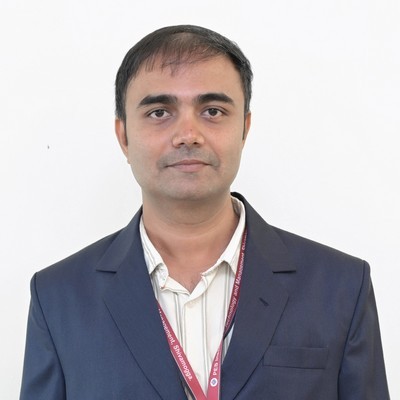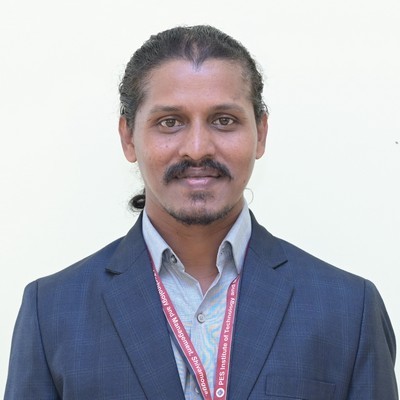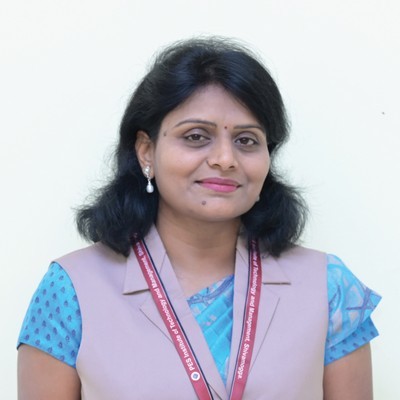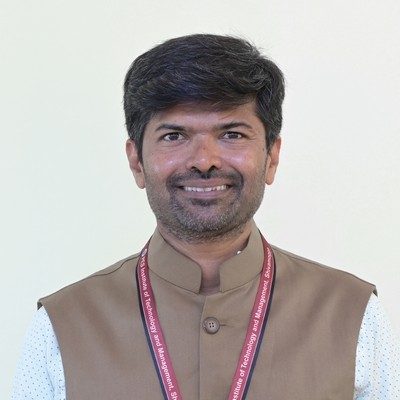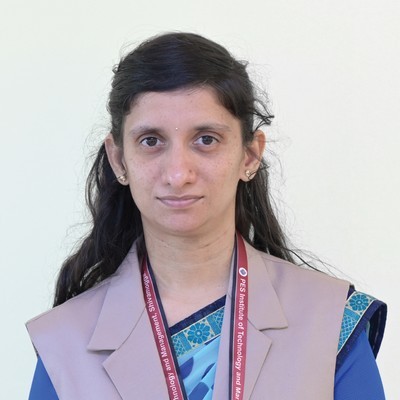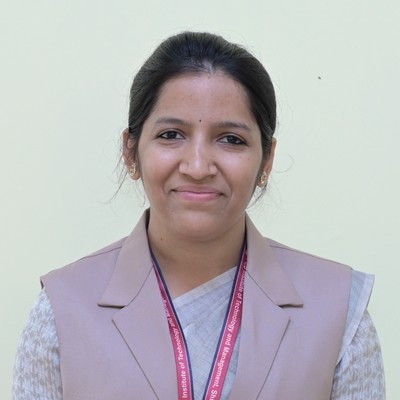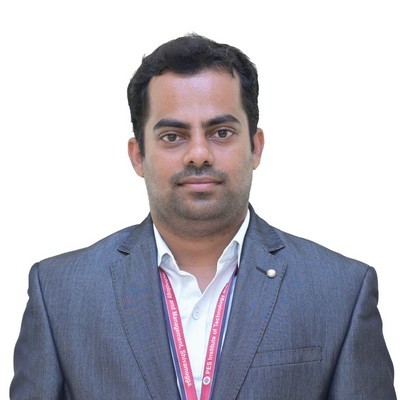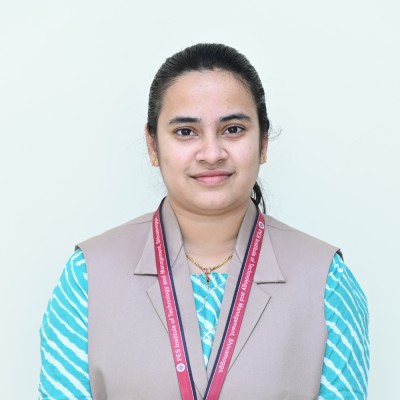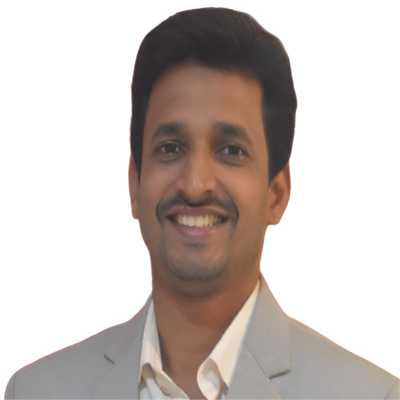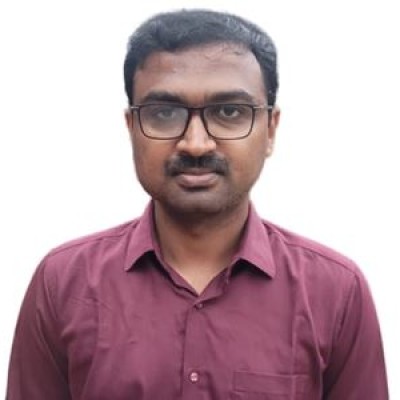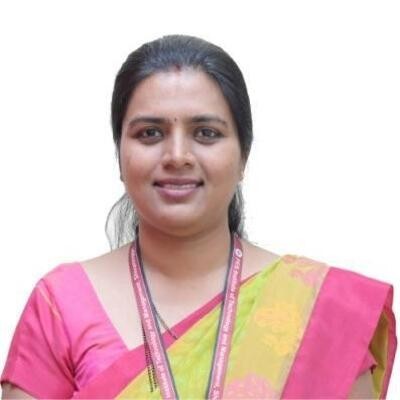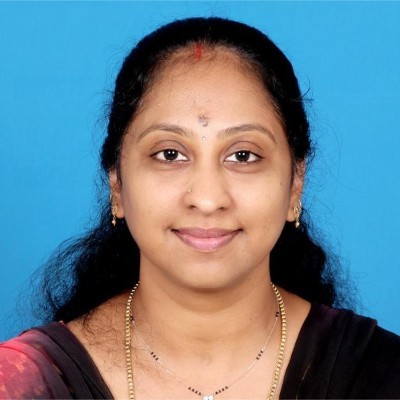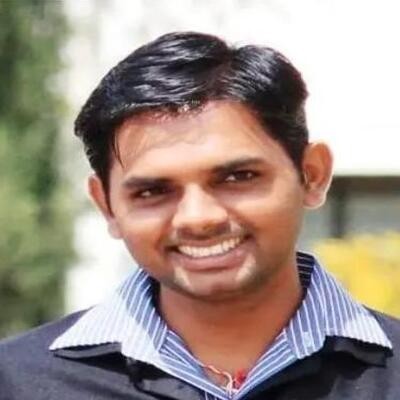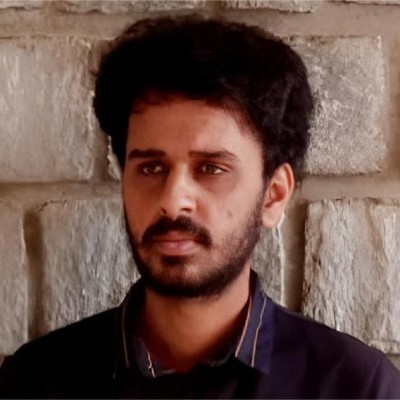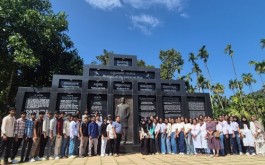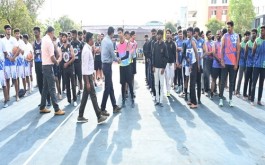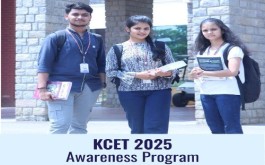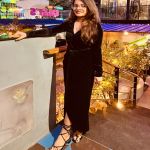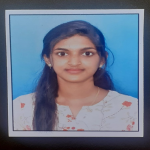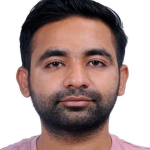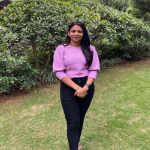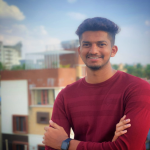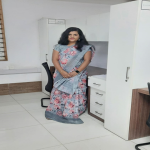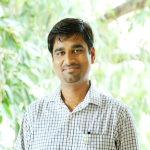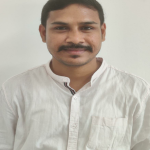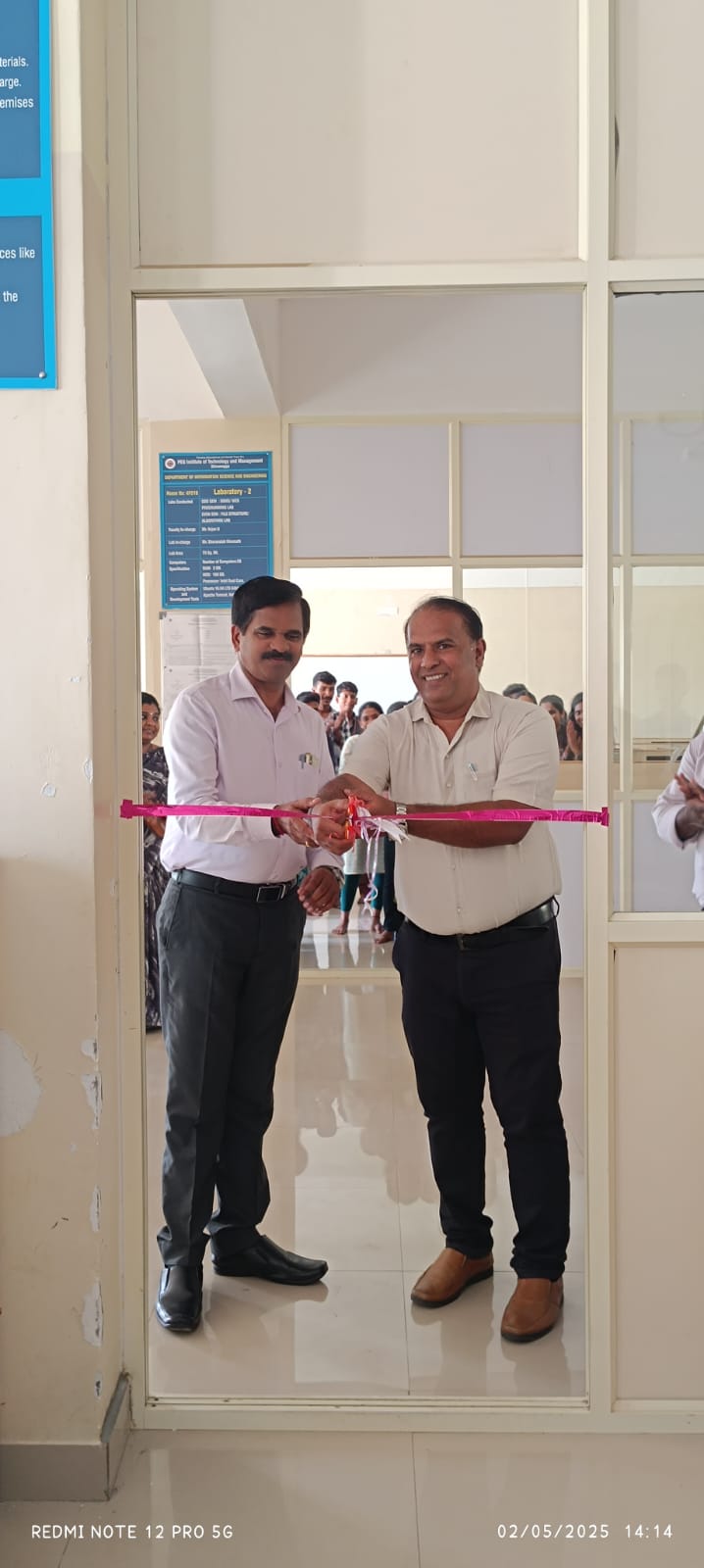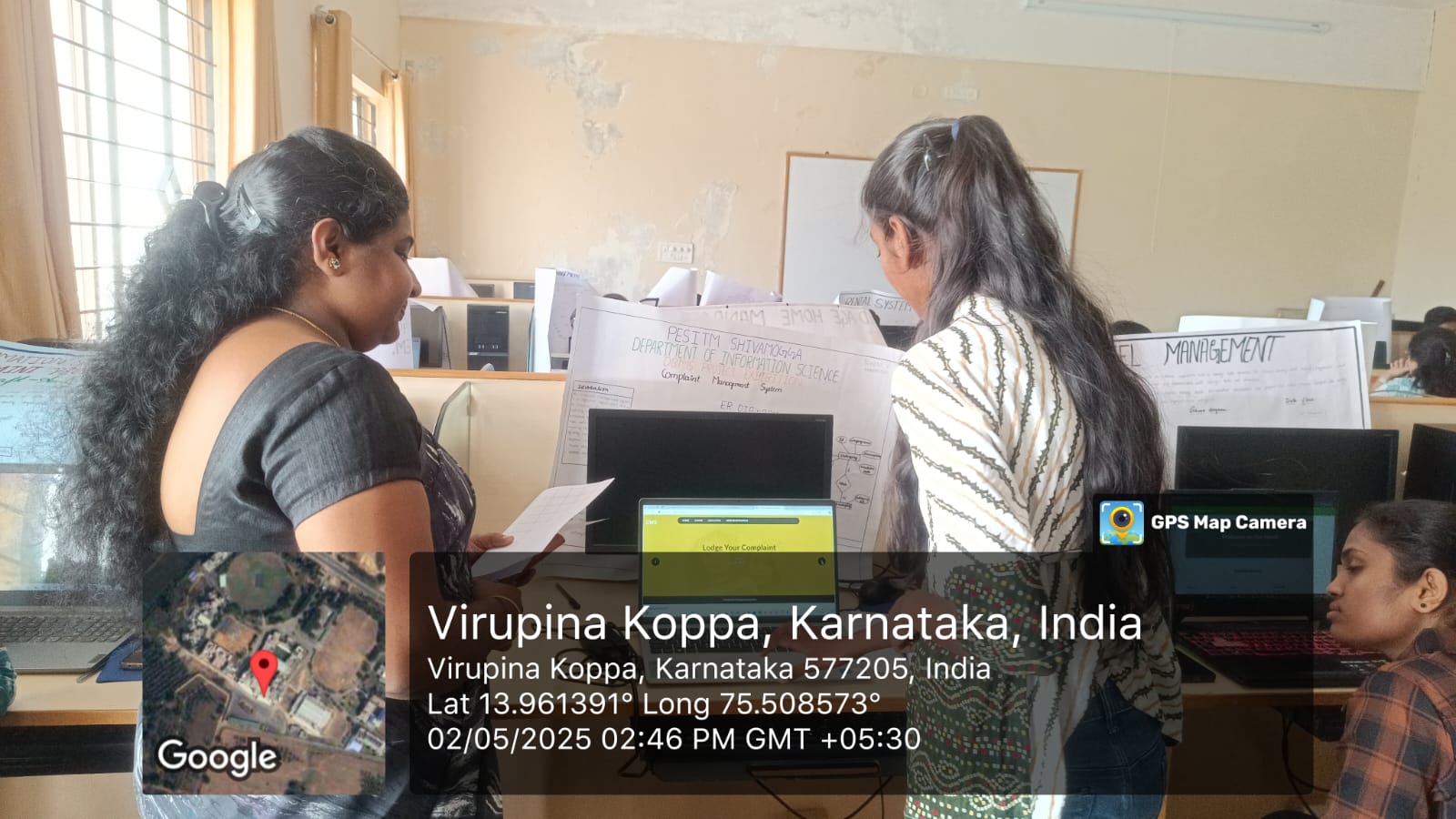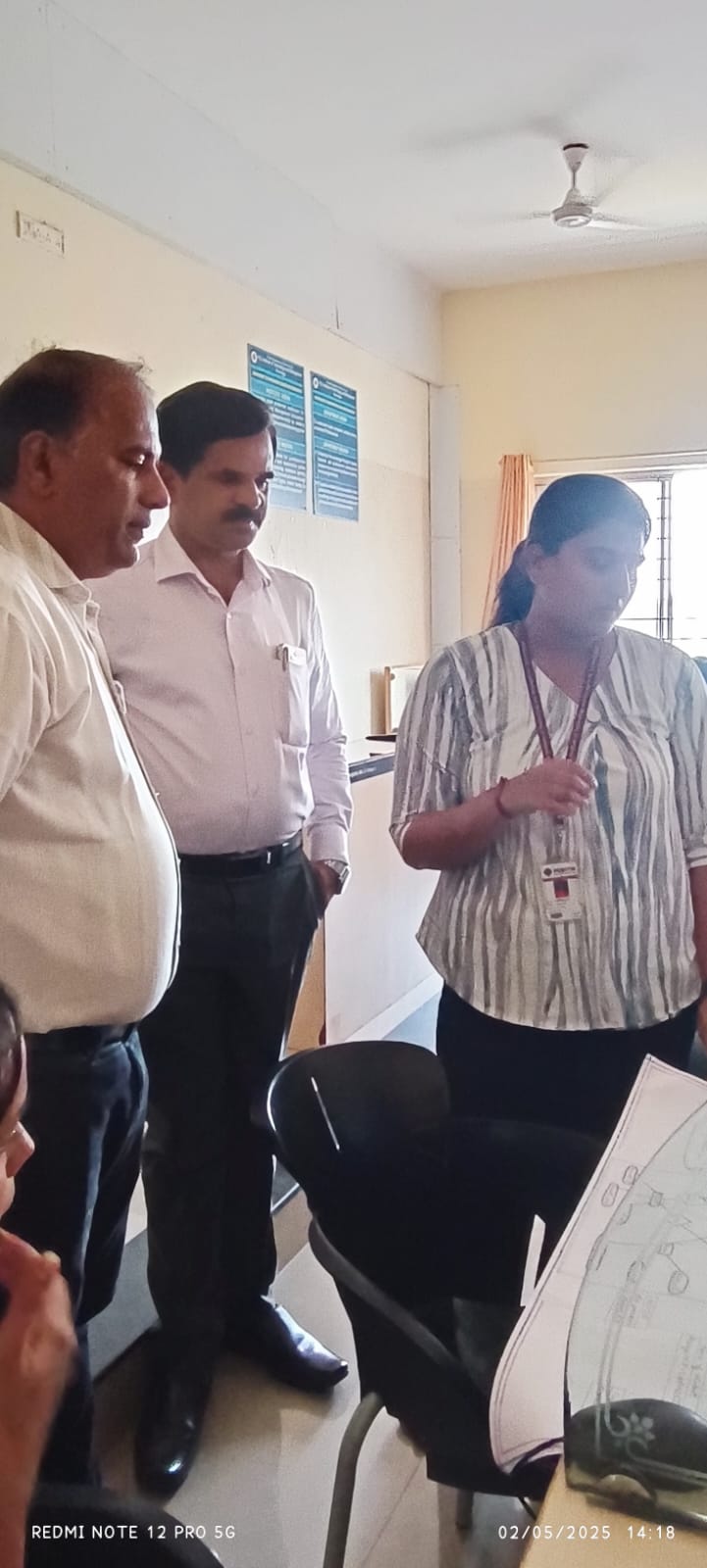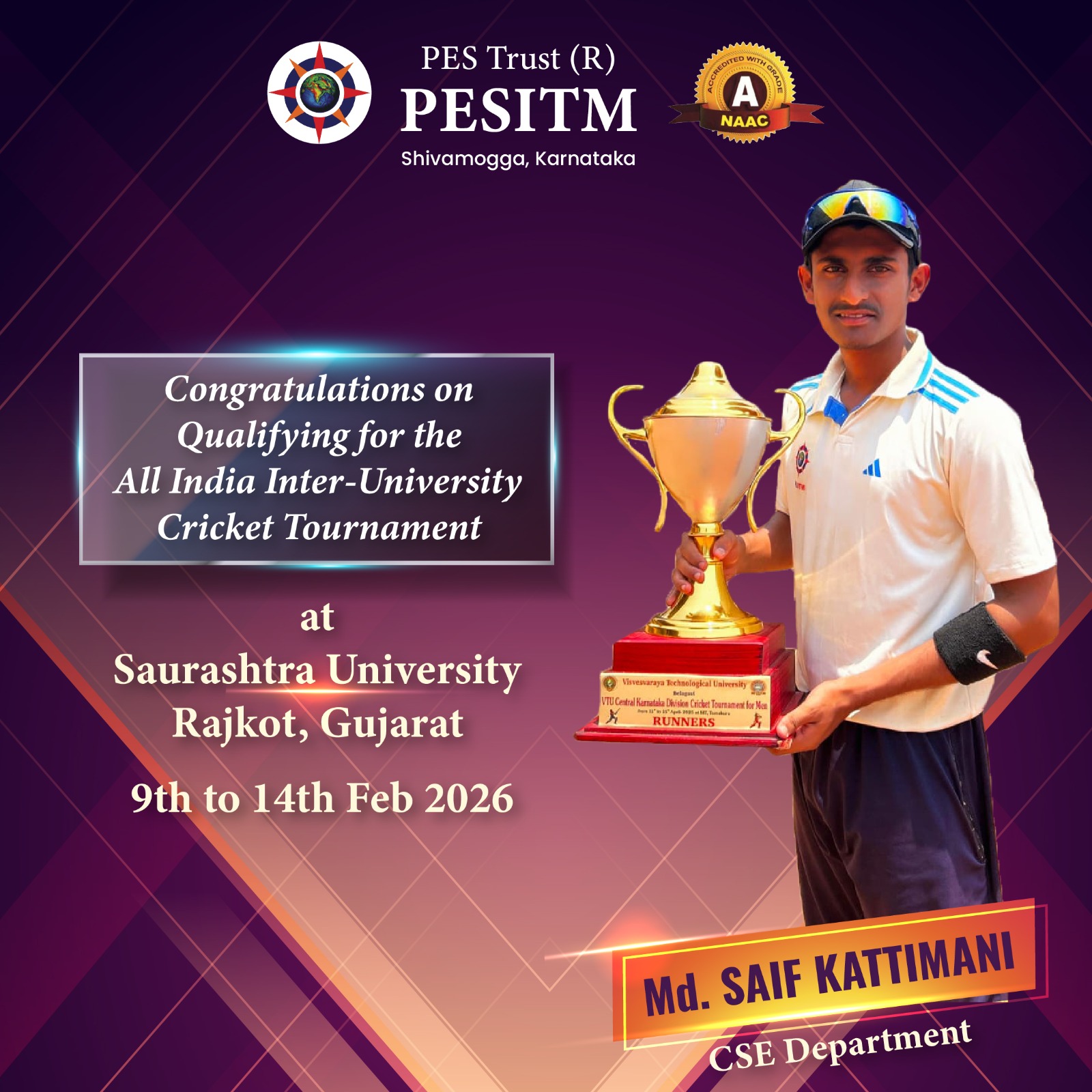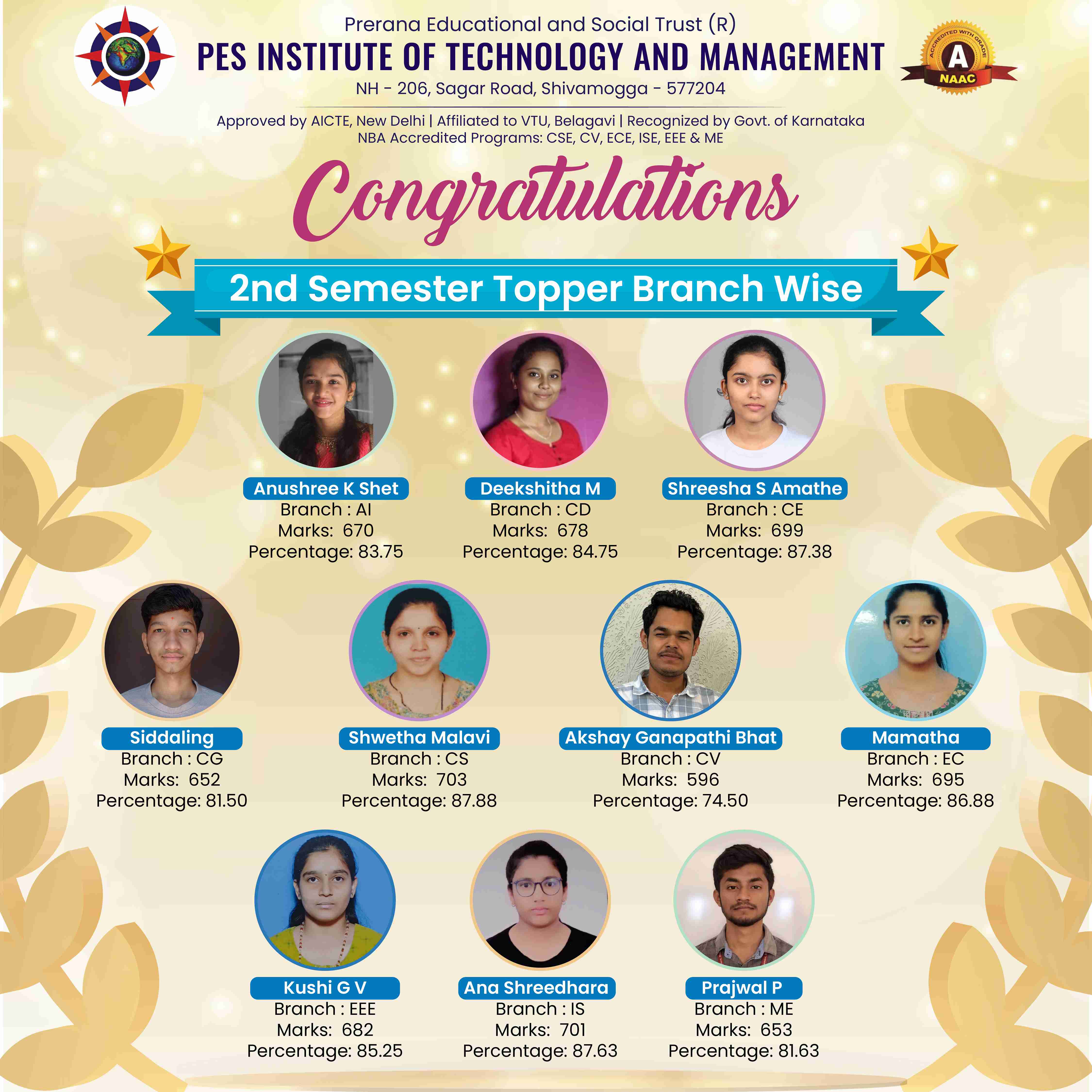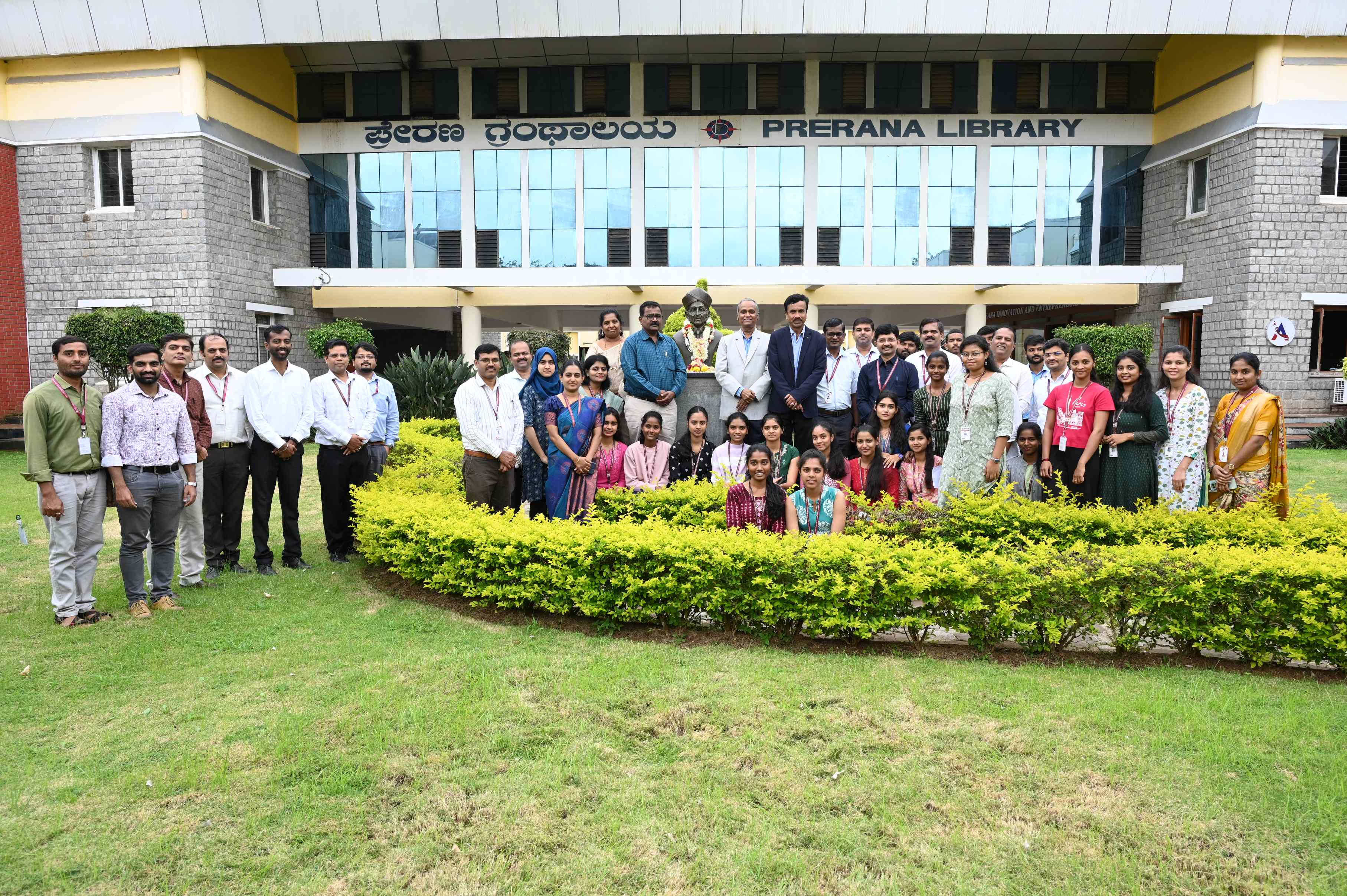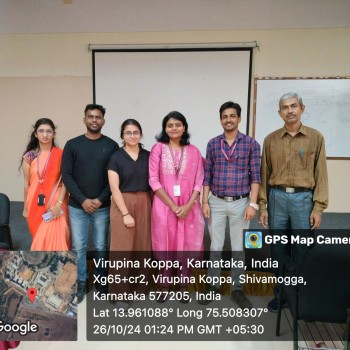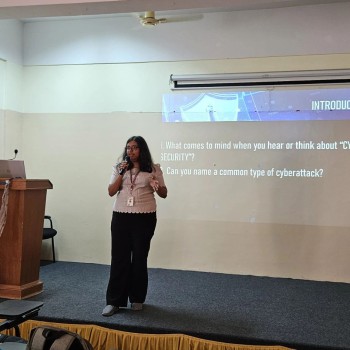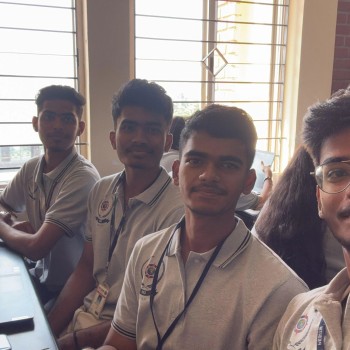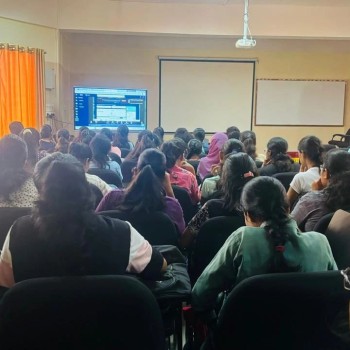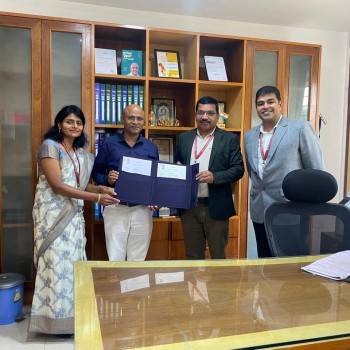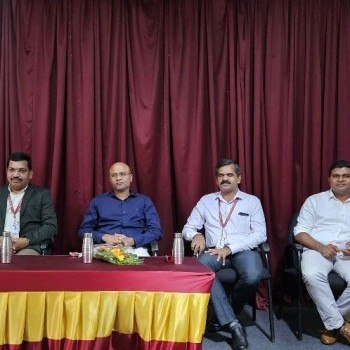The Department of Computer Science & Engineering was established in 2007 and aimed to fulfil the demands of the software industry. The department offers high-quality technical education to its students with the help of its state-of-the-art computing facilities and by keeping pace with the latest technological developments.Computer Science and Engineering course integrates principles from computer science, covering programming, data structures, algorithms, computer architecture, and software development. It also includes advanced topics like AI, cybersecurity, and networking, preparing students for diverse careers in technology.The students undergo in-house training, which includes advanced, skill enhancement and industrial training, bridging the gap between industry and academia.The Computer Science & Engineering program is accredited by the National Board of Accreditation (NBA) for three years from 2024 to 2027.
- Equipped with advanced infrastructure and computing facilities to support practical learning, including laboratories that enhance students' practical expertise.
- Industry Collaboration: MoUs with Haegl Technologies and Sulonya Technologies have led to the establishment of a Centre of Excellence in Data Science on campus, along with regular technical talks and workshops.
- Regular workshops and short-term training programs (STTPs) are conducted.
- Active interaction between students and professors enriches the educational experience.
To be a leader in providing education with skilled technical knowledge imbibing professional ethics to the students in Computer Science and Engineering.
Mission 1:We impart quality education to students by ensuring a learning environment through qualified faculty and a good infrastructure.
Mission 2:We can encourage students to attain technical and ethical skills for a successful career in industry, academics, research & entrepreneurship through active engagement with all the stakeholders.
The ability to conceptualise, analyse, design and develop IT Solutions of varying complexities by leveraging advances in computer technology.
The ability to apply standard practices and strategies in software project development and management using an industry-wide benchmarked framework to deliver a sustainable quality product.
The ability to work as a team player in a cross-cultural environment adhering to work ethics with a passion for entrepreneurship and a zest for higher studies.
-
Engineering Graduates will be able to:
Engineering knowledge: Apply the knowledge of mathematics, science, engineering fundamentals, and an engineering specialisation for the solution of complex engineering problems.
Problem analysis: Identify, formulate, research literature, and analyse complex engineering problems reaching substantiated conclusions using first principles of mathematics, natural sciences, and engineering sciences.
Design/development of solutions: Design solutions for complex engineering problems and design system components or processes that meet the specified needs with appropriate consideration for public health and safety and cultural, societal, and environmental considerations.
Conduct investigations of complex problems: Use research-based knowledge and research methods including design of experiments, analysis and interpretation of data, and synthesis of the information to provide valid conclusions.
Modern tool usage: Create, select, and apply appropriate techniques, resources, and modern engineering and IT tools, including prediction and modeling to complex engineering activities, with an understanding of the limitations.
The engineer and society: Apply reasoning informed by the contextual knowledge to assess societal, health, safety, legal, and cultural issues and the consequent responsibilities relevant to the professional engineering practice.
Environment and sustainability: Understand the impact of the professional engineering solutions in societal and environmental contexts, and demonstrate the knowledge of, and need for sustainable development.
Ethics: Apply ethical principles and commit to professional ethics and responsibilities and norms of the engineering practice.
Individual and team work: Function effectively as an individual, and as a member or leader in diverse teams, and in multidisciplinary settings.
Communication: Communicate effectively on complex engineering activities with the engineering community and with the society at large, such as, being able to comprehend and write effective reports and design documentation, make effective presentations, and give and receive clear instructions.
Project management and finance: Demonstrate knowledge and understanding of the engineering and management principles and apply these to one’s own work, as a member and leader in a team, to manage projects and in multidisciplinary environments.
Life-long learning: Recognize the need for, and have the preparation and ability to engage in independent and life-long learning in the broadest context of technological change.
To develop the ability to interpret the fundamental concepts and methodologies of computer systems.
To use mathematical concepts to crack problems using suitable mathematical analysis, data structures and algorithms.
Develop the ability to grasp the software development lifecycle and methodologies of software systems and possess competent skills and knowledge of the software design process. Familiarity and practical proficiency with a broad area of programming concepts and provide new ideas and innovations towards research.
Faculty
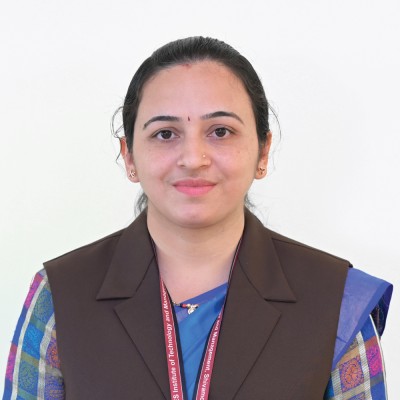
Mrs. Chethana S
Programmer
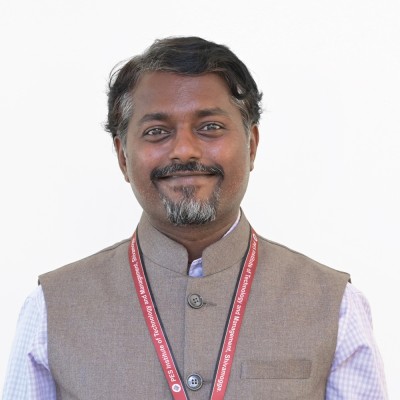
Mr. Sharath S
Programmer
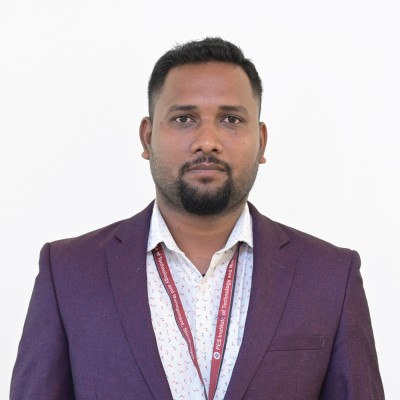
Mr. Mallika Naik B
Instructor
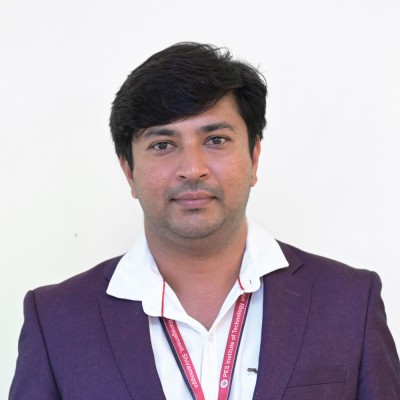
Mr. Shivakumar S V
Instructor
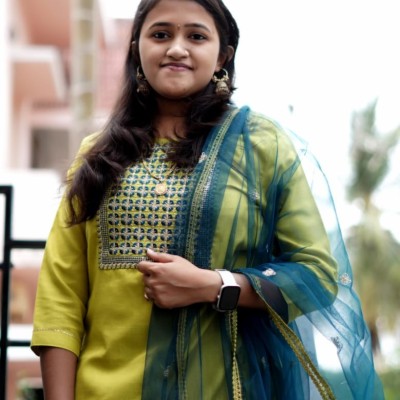
Ms. Yogitha
Office Assistant
Facilities / Labs
Laboratory Details
The Department of CSE has enough classrooms, and all the classrooms are equipped with projectors. The department also has a seminar hall. There are well-equipped laboratories with advanced research infrastructure and interdisciplinary and industry-based labs to emphasise holistic learning for students.
- The CSE department has 7 well-equipped labs.
- The CSE department has Wi-Fi enabled.
- A research lab has also been established with high-end computer systems and peripherals with internet facilities for executing research projects funded by various agencies like KSCST, VGST, etc.
- All the labs are LAN-connected with licensed software packages related to the latest global techniques.
The CSE department library aims to support students and faculty by providing the most relevant and required books. The library is well stocked with 436 titles of books exclusive to CSE department UG and PG courses. In addition, the library is stocked with UG student project reports, previous year semester end question papers, and Ph.D. theses for faculty and student reference. The library has a floor area of 42 square metres and a seating capacity of 10 people.
The department strictly aim to provide a dedicated system to each student The Lab is equipped with Dell i5 machines with 16 GB RAM and 512 GB SSD with powers the system to run any complicated Machine learning Models.


Number of Computers: 25
Equipment Details: Acer veriton 18.5” desktop, Intel Dual core 2.50 GHZ Processor, 2GB RAM 160 GB HDD, PS2 Keyboard and Mouse. 24 PORT 6 CISCO Switches
In the DBMS lab, students learn to create tables and execute queries on aggregate functions, types of joins, nested queries, correlated nested queries, views and triggers. Analysis and Design of Algorithms lab is the platform where students can solve problems by using various algorithm design techniques.
Number of Computers: 25
Equipment Details: Acer veriton 18.5” monitor, dual core 2.50 GHZ processor, 2GB RAM, 160 GB HDD, PS2 Keyboard and Mouse. 24 PORT 6 CISCO Switches
In this lab, students learn to write both client side and server-side programs. Here, XHTML and CSS are used for web page creation, JavaScript for client-side validations, PHP and Servlet programs for the server side to do all computations. With this knowledge, students will be able to create owm website at the end of the course.


Number of Computers: 23
Equipment Details: Acer Desktop, Intel Dual Core 2.50 GHz Processor, 2GB RAM, 160GB, 18.5” Monitor, Keyboard and Mouse.CRO, Signal Generator, IC Trainer kits, DC Power Supply (Fixed/variable), ARM7 LPC2148 evaluation boards and kits,
The lab involves hardware and software implementation of the designed circuits. Microcontroller and Embedded system Lab concentrates on writing and executing assembly language programs for ARM processors. The students should write an assembly program to control hardware interfaces.

Number of Computers: 30
Equipment Details: Dual core 2.50GHz, 2GB RAM, 160GB, 18.5” Monitor, Keyboard and Mouse, 24 PORT 2 CISCO Switches.
This lab is established to develop skills for designing and analysing simple linear and non-linear data structures. It strengthens the ability of the students, to identify and apply the suitable data structure for the given real-world problem.

Number of Computers: 23
Equipment Details: Acer Desktop, Intel P4 Processor, 512MB RAM, 80GB, 18.5” Monitor, Keyboard and Mouse.CRO, Signal Generator, IC Trainer kits, DC Power Supply (Fixed/variable)
ADE lab helps the student understand how basic designing is done for analogue and digital circuits. The lab involves hardware and software implementation of the designed circuits. DS lab is established to develop skills for designing and analysing simple linear and non-linear data structures.

Number of Computers: 30
Equipment Details: Dual core 2.50GHz, 2GB RAM, 160GB, 18.5” Monitor, Keyboard and Mouse, 24 PORT 2 CISCO Switches.
In this lab, students will learn problem-solving techniques. To teach the student to write programs in C and to solve the problems. Write programs that perform operations using derived data types. Students also acquire programming skills in core Python, develop skill in designing Graphical User Interfaces and create database applications in Python.
- freeglut3 version 2.2.1-2,Vim version 7.4
- NS2/NS3, gedit version 3.18.3, gcc 5.4.0
- Libreoffice 5.1.6.2
- Netbeans 8.0,Mysql server 8.0,Apache server, PHP
- Idle 3, YAAC,LEX
- Android Studio (Flamingo)
- Pspice,Xilinx 9.1,Keil µvision4, Flashmagic
Infrastructure
| #No. | Description | Available |
| 1 | Total number of Desktop computers | 195 |
| 2 | Total number of laptops | 01 |
| 3 | Total number of switches | 16 |
| 4 | Total number of Access points ( Wifi) | 09 |
| 5 | Total number of Projectors | 14 |
| 6 | Total number of Fire extinguishers | 09 |
| 7 | Internet speed | 500Mbps |
| 8 | Total number of printers | 02 |
| 9 | Xerox Machine | 01 |
Research
Focus of Research
Research is a systematic process of inquiry that aims to expand knowledge, discover new information, and provide solutions to problems. Here are some broad areas in which research is commonly conducted at our department:
- Cloud Computing and its Security issues
- IoT and its security issues
- Machine learning
Research Supervisor and Scholar details
| #No. | Research Supervisor Name | Name of the Research Scholars |
| 1 | Dr. Prasanna Kumar H R Professor |
Mr. Krishnaprasad D S |
| 2 | Dr. Manu A P Professor |
Mr. Pavan Kumar V Mr. Janardhan D R Mr. Ranjan V |
| 3 | Dr. Pramod Associate Professor |
Mr. Abhijith Das Mr. Chandrashekar J M Mr. Hanumanthappa G |
| 4 | Dr. Sunitha B S Associate Professor |
Mrs. Pathibha R Mr. Sabin T T |
| 5 | Dr. Chethan L S Associate Professor |
Mrs. Ashwini S P Mr. Devaraj F V |
| 6 | Dr. Arjun U Associate Professor |
Yet to register |
Research Grants
Research grants are funding opportunities provided by various organisations, including government agencies, private foundations, corporations, and non-profit organisations, to support research projects. These grants are typically competitive, and researchers or research institutions need to submit proposals outlining their research objectives, methodology, budget, and expected outcomes. Here is the list of research grants received by different granting agencies:
1. Government Grants:
From VISION GROUP ON SCIENCE AND TECHNOLOGY (VGST) the department received an amount of Rs.25 lakh project Vision Group on Science and Technology(VGST), under Centres of Innovative Science & Engineering Education (CISEE) scheme-2019 to 2020. The PI of this project was Dr. Likewin Thomas.
2. Corporate Grants:
The department received a worth of Rs. 2 lakhs from the Nokia company as seed money to promote and research mobile network communication.
Collaborations
Collaboration and Memorandum of Understanding (MoU) are two important aspects of research and academic partnerships.
Industry-Academia Collaboration: Academic institutions collaborate with industry partners to bridge the gap between academic research and practical applications. In this regard, the department has an MoU with HAEGL TECHNOLOGIES PVT LTD, Dharwad, Karnataka and Sulonya Technology.
Memberships / MOU
Memberships
| Professional Membership | CSI, ISTE, IFERP |
| Student Membership Chapters | IEEE, EDX ,Oracle, Coursera |
| Institutional Membership | ICT Academy |
| SL.NO | Collaboration | Name | Address | Year of Collaboration |
|---|---|---|---|---|
| 1 |
 |
Sulonya Technologies Private Limited | Sulonya Technologies Private Limited, Shivamogga, Karnataka 577204. | 2022-2023 |
| 2 |
 |
Haegl Technologies Private Limited | #3 start up unit sdmcet, Rajivgandhinagar, Dharwad, Karnataka 580002. | 2022-2023 |
Department Achievements
Academic Year 2024
| 1 | Ms.Sanjana M of the Third-year Computer Science & Engineering Department participated in the Weightlifting State Level Competition on 28th Oct 2022-23 at Global Academy of Technology College, Bangalore, organised by VTU, and participated in the Powerlifting State Level Competition on 9th Feb 2022-23 at Vidyavardhaka College of Engineering, Mysore organised by VTU, and won a Silver Medal in powerlifting. |
| 2 | Ms. Vibha Varshini (4PM21CS116), Ms.Sahana (4PM21CS113), and Ms.Madhumala (4PM21CS079) participated in the VTU Intercollegiate Thrown Ball Tournament hosted by SIET Tumkur and won Second Prize on December 11-12, 2024. |
| 3 | Ms. Virupakshi (4PM22CS125) participated in the project "Re-enroll: Bringing Every Child Back To School" and successfully secured seed funding of $800 from the Aspire Institute (founded at Harvard University) on December 16, 2024. |
| 4 | Ms. Ragini Ravi Budihal (4PM21CS066) and Ms. Juveria Kouser (4PM21CS124) participated in Advitiya-24, a National-Level Technical Fest at KLE Institute of Technology, Hubli, and won Second Place with a cash prize of ₹3,000 on November 14, 2024. |
| 5 | Ms. Madhu Malagn (First Year) participated as part of the Karnataka Women's State Team in the 45th National Throwball Championship 2024 held in Uttar Pradesh and won the National Championship from November 8-11, 2024. |
| 6 | Ms.Chinmaya Datta S.R. (4PM21CS026), Mr.Darshan D. (4PM21CS028), Mr.Punith H.L. (4PM21CS064), and Ms.Spandana D. (4PM21CS091) participated in a Technical Paper Presentation at AGM Rural College of Engineering and Technology, Varur , and won the Best Paper Award on November 14, 2024. |
| 7 | Mr.Darshan (4PM21CS028), Mr.Akash (4PM22CS011), Mr.Prajwal (4PM23CS076), Mr.Mohammed Saif (4PM23CS063), Mr.Keerthan (4PM23CS025), and Mr.Bharath (4PM23CS016) participated in the VTU Central Karnataka Division Intercollegiate Cricket Tournament and were declared Winners on November 8, 2024. |
| 8 | Mr.Gagan Kumar (4PM22CS039)and Mr.Poorvik (4PM23CS073) participated in the FKCCI 16th Edition Manthan-2024 Business Plan Presentation and won 6th Position with a prize of ₹30,000 on September 18, 2024. |
| 9 | Ms. Priya G Padanad of the second-year Computer Science and Engineering Department participated from 13th May 2023 to 19th May 2023 in Yuva Sangam for the vision of “Ek Bharat Shrestha Bharat ' of Honourable Prime Minister of India, Shri Narendra Modi. |
| 10 | Ms.Ishika Guptha, Ms.Arpitha K. B, Mr.Amith R, and Mr.Harshavardan Reddy K of the final year Computer Science & Engineering Department won the Best Paper Award in the National Conference NCEICT organised by CSE Dept, PESITM, Shivamogga on 12th May 2023. |
| 11 | Sparsha V, Srusty U Biligi and Shiva Kumar of the final Year Computer Science and Engineering Department won Third Prize in the CodXpress section-level hackathon Organised by the IEEE Bangalore section on 29th and 30th April 2023. |
| 12 | Yashvi J Rai of third year Year Computer Science and Engineering Department were awarded an adjudged certificate for easy writing on “contribution of Nethaji Subhas Chandra Bose to the freedom Struggle “ Parakram Diwas celebration on 23rd January 2023 in collaboration with the Ministry of Defence and MyGov. |
| 13 | Anusha S. S, Nisraga V, Raksha M. C, Tejas Gowda K of final year under the guidance of Dr Chethan L S filed the Patent titled “Human Detection In Uncontrolled Camera Motion Environments” on 26/05/2023. |
| 14 | ShreePrada H. S, Padmashree Gupta B. G., Sanketh U Gujjar and Sandeep G. of the final year under the guidance of Mr Rajesh T: Rs. 4000/- sanctioned for the project “Vehicle Detection, Counting and Locking and Unlocking of Vehicle Speed”. |
| 15 | Madhavan G, Varsha S, Vishwas G V and Yashwanth N Chittaragi of the final year under the guidance of Dr Sunitha B. S T: Rs. 3000/- sanctioned for the project “Precision Agricultural Surveillance System for Significant Yielding Using Machine Learning”. |
| 16 | Darshan S, Deepika N K, and Harshavardhan of the final year under the guidance of Mr Ranjan and Dr. Chethan L S: Rs. 3000/- sanctioned for the project “Intelligent Water Distribution and Management System”. |
| 17 | Anusha S. S, Nisraga V, Raksha M. C, Tejas Gowda K of final year under the guidance of Dr Chethan L S: Rs. 4000/- sanctioned for the “Human Detection In Uncontrolled Camera Motion Environments”. |
| 18 | A Total of 23 Students completed the NPTEL course (Elite=13, Elite+silver=6, Successfully completed=4). |
Academic Year 2025
| 1 | Ms.T. A. Anantha Krishna and 15 other Students participated in MONAIthon 2025, where ideas meet Innovation (48 hours) from 27th to 28th August 2025 at JNNCE Shivamogga. |
| 2 | Ms. Apoorva participated in the IndiaFOSS 2025 Conference from 20th to 21st September 2025, at Bengaluru. |
| 3 | Ms.Divya S K and 7 other Students participated in SAP Inside Track - VIBEATHON on 12th September 2025 ,Bengaluru. |
| 4 | Mr.Tejaraj S P, Mr.Nithin Gowda, and 8 students participated in Techzone Nationals 2K25 from 10th to 11th November 2025 at JNNCE Shivamogga. |
| 5 | Ms.Vidhathri V Bhat and Team participated in Digitise 2K25 from 16th to 17th October 2025 at AIT, Chikkamagaluru. |
| 6 | Four students from the 5th semester participated in the National Level Hackathon on 11th October 2025 at Jain College of Engineering, Belagavi. |
| 7 | Four students from the 3rd semester in the 24-hour National-Level Hackathon from 29th to 30th October 2025 at AIT, Chikkamagaluru. |
| 8 | Ms. Thanushree K H participated in Open Source India Program from 4th to 6th November 2025 at NIMHANS Bengaluru |
| 9 | Mr.Gaganakumar N and team secured a cash prize of ₹50,000 at Manthan 2025 – FKCCI Innovation Challenge on 16th September 2025. |
Academic Year 2024
| 1 | Mr. Sunilkumar H R published multiple high-impact works in 2024, including a book chapter with Springer and two Scopus-indexed conference papers in Springer series on deep learning for agriculture and real-time object detection. |
| 2 | Dr. Manu A P Authored two textbooks, "A to Z Linux" and "ABC of Hadoop, Docker and Ansible" in 2021, and published a research paper on video anomaly detection in 2025. |
| 3 | Ms. Madhu D-Published a research paper on "Automatic Text Summarization and Text Generation for News Articles" in the International Journal of Innovative Research in Science, Engineering and Technology (IJIRSET) in May 2024. |
| 4 | Ms. Suchitra H L-Published two research papers in 2024 on sentiment analysis using Bi-LSTM models and automated oral cancer detection using hybrid CNNs. |
| 5 | Mr. Shivanand Maradi-Published a research paper on a "Construction Plot Labour’s Safety and Activity Management System" in the International Journal of Scientific Research in Engineering and Management (IJSREM) in December 2024. |
| 6 | Mr. Chethan P J-Presented a paper on "Student Behavior Analysis Using Deep Learning" at the International Conference on Artificial Intelligence and Healthcare (ICAIH-2025). Many Faculties pursuing their Ph.D. completed multiple NPTEL courses as part of their coursework. |
| 7 | Mrs. Pratibha S Authored the textbook "Health Science for Art of Living", published by Immortal Publication in 2024. |
Academic Year 2024-2025
| 1 | Ms. Suchitha H S-Published two research papers in 2024-2025 on advancing IoT network security and a model for silkworm yield prediction. |
Academic Year 2025
| 1 | Dr. Sunilkumar H R received Ph.D award. |
| 2 | Dr. Sunilkumar H R reviewed technical papers for the 3rd International Conference on Artificial Intelligence, Computer, Data Sciences and Applications, Boracay Island, Philippines. |
| 3 | Dr. Sunilkumar H R reviewed technical papers for the 1st IEEE International Conference on "Recent Trends in Computing and Smart Mobility", Bhopal, India, from 5th to 6th December 2025. |
| 4 | Dr. Sunilkumar H R reviewed technical papers for IEEE India Council International Conference 2025 from 18th to 20th December 2025, Bangalore, India. |
| 5 | Dr. Prasanna Kumar H R is nominated by VTU as a member of the Board of Studies (BOS) for the CSE Program of Navodaya Institute of Technology (Autonomous), Raichur. |
| 6 | Dr. Prasanna Kumar H R served as Session Chair for the Fifth International Conference on “Emerging Research in Electronics, Computer Science and Technology” at PES College of Engineering, Mandya, on 13th September 2025. |
| 7 | Dr. Prasanna Kumar H R reviewed technical papers for the 3rd International Conference on Networks, Multimedia and Information Technology in association with IEEE on 1st–2nd August 2025, at NMIT, Bangalore. |
| 8 | Dr. Prasanna Kumar H R reviewed technical papers for the 2nd International Conference on Intelligent Algorithms for Computational Intelligence Systems from 22nd to 23rd August 2025, at Navkis College of Engineering, Hassan |
| 9 | Dr. Arjun U with Dr. Chethan L S received ₹34 lakh VGST grant for "Centre of Excellence in Blockchain". |
| 10 | Dr. Chethan L S served as a judge for TECHZONE NATIONALS 2025 at JNNCE Shivamogga. |
| 11 | Dr. Chethan L S served as a Doctoral Committee Member for research scholars at JNNCE, Shivamogga. |
| 12 | Dr. Manu A P served as a member of the Technical Expert Committee for inspecting newly procured LMS software at Kuvempu University, Shankaraghatta, Shivamogga. |
| 13 | Dr. Manu A P reviewed international manuscripts for the Elsevier Computer Networks Journal. |
| 14 | Mr. Sandeep K H attended 6-day ATAL FDP on "Advanced Embedded Systems: RTOS and Automotive CAN Application" from 18th to 23rd August 2025, at Sri Siddhartha Institute of Technology. |
| 15 | Dr. Manu A P served as the Resource Person in an ATAL FDP conducted at PESIAMS, Shivamogga. |
Academic Year 2025-2028
| 1 | Dr. Prasanna Kumar H R is Nominated as a member of the Board of Studies (BOS) for CSE and Allied branches of VTU (2025–2028) |
Placement Details
Percentage of Students got Placed (Year wise List)
| Academic Year 2021-22 |
Academic Year 2022-23 |
Academic Year 2023-24 |
Academic Year 2024-25 |
Academic Year 2025-26 |
| 96% | 82% | 74% | 86% | 30% Ongoing |
Alumni
“This is the college where Management and Faculty work harder than us towards realising our “dreams”. They showed us our potential, what we are and what we can be. One big line suggestion for juniors – College will always give you the platform, you need to choose the right one of yours to utilise it and make yourself a route for goal and success. Good luck!.”
“The time in PESITM just flew by. It was a stepping stone for me. It is a great group of lecturers led by a dynamic HOD. The best thing about PESITM is its infrastructure, I have not seen any other engineering college which provides such a wide range of facilities for both curriculum and also extracurricular activities. For subjects like Data Structures, OOPS, Java etc, if the few theory classes are conducted in the lab I think it will help students to understand the concepts much more easily and also get some practical knowledge on the subject.”
“CSE branch is really good. Got a lot of support from the lecturers. Good place to have a degree. ”
“Co-Founder/Managing Partner Iconify Software India Private Limited Brocolli International Private Limited Antique Constructions and Builders akheel@1help.co.in ”
“The best thing about PESITM is “Discipline”. Discipline was very well maintained on campus. The CSE department had a pretty good teacher-student relationship.”
“Unforgettable moments in this college. All the lecturers are encouraging. Another thing I want to highlight is the location of the college. It is slightly away from Shimoga city which is a good thing.”
“Teaching is of good quality. The library and the Infrastructure is pretty good.”
“The best thing about PESITM is “Discipline”. Discipline is very well maintained on campus. The CSE department has a good teacher-student relationship.”
“The environment is best suited to excel in academics. The experience at PESITM has been pretty good”
News Letter
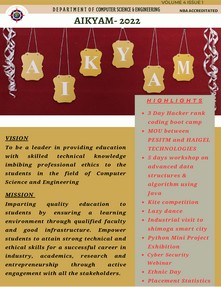 View
View
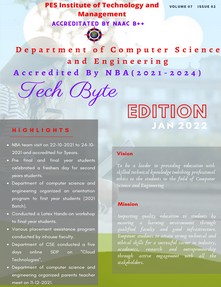 View
View
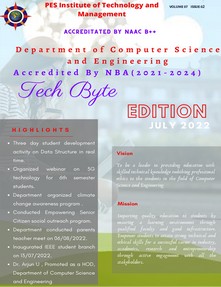 View
View
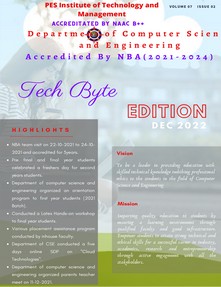 View
View
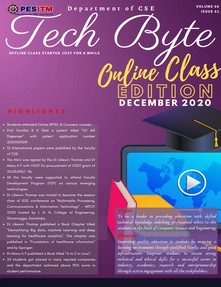 View
View
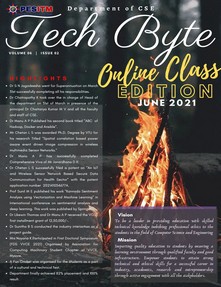 View
View
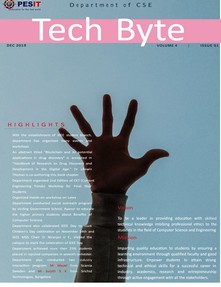 View
View
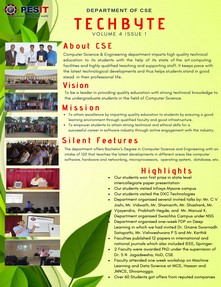 View
View
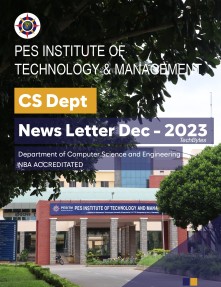 View
View
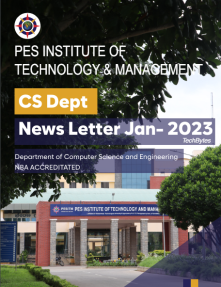 View
View
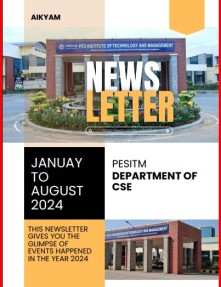 View
View
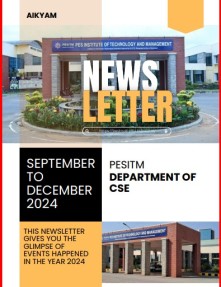 View
View
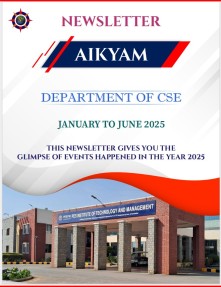 View
View
Contact Us
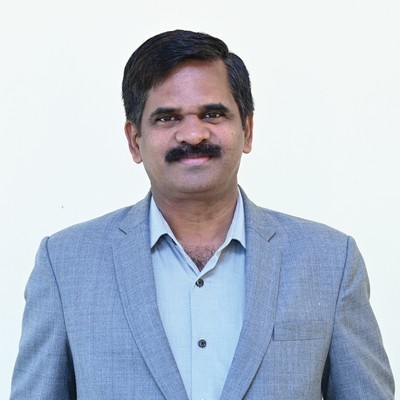
Dr. Prasanna Kumar H R
Professor and Head of the Department
Computer Science and Engineering
PES Institute of Technology and Management
NH 206, Sagar Road, Shivamogga – 577 204
Office: 8147053073
Email:
hodcse@pestrust.edu.in

